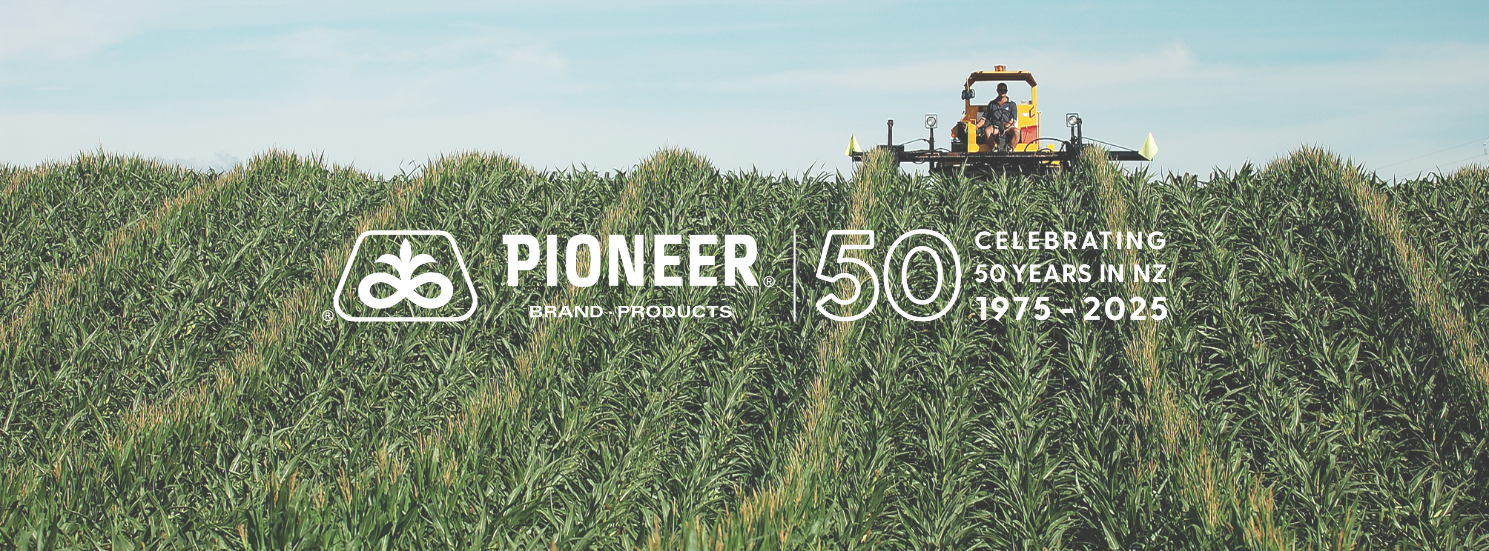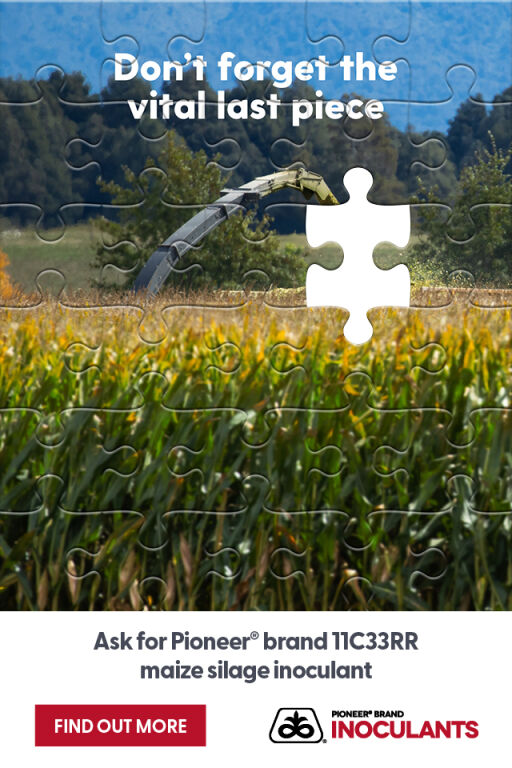
About
Pioneer
Pioneer 50 Years
This season we celebrate 50 years since the signing of the seed production and distribution agreement between Pioneer Hi-Bred International Incorporated and Philip Yates, who at the time was the Managing Director of Arthur Yates & Co Ltd and subsequently the Founder of Genetic Technologies Ltd, a Yates family-owned business.
The signing marked the first step in the launch of Pioneer® brand maize and other products in New Zealand and the start of an enduring business relationship between Pioneer and the Yates family, both of whom have had a long history in the global seed business.
Pioneer Hi-Bred International was founded by Henry A. Wallace who later in life was elected Vice President of the USA under President Franklin Delano Roosevelt. Henry was one of a handful of people in the world who initially recognised the immense opportunities that could be gained by growing hybrid maize. He began experimenting with the crop in high school and while at Iowa State College, became fascinated with the relatively new science of hybrid genetics. After graduating in 1910, Henry started breeding hybrid maize and by 1923 had produced a high-yielding hybrid he called Copper Cross. In 1924, it became the first hybrid to win the gold medal in the Iowa State Corn Yield Contest. In 1926 Wallace incorporated the Hi-Bred Corn Company, which later became Pioneer Hi-Bred International.
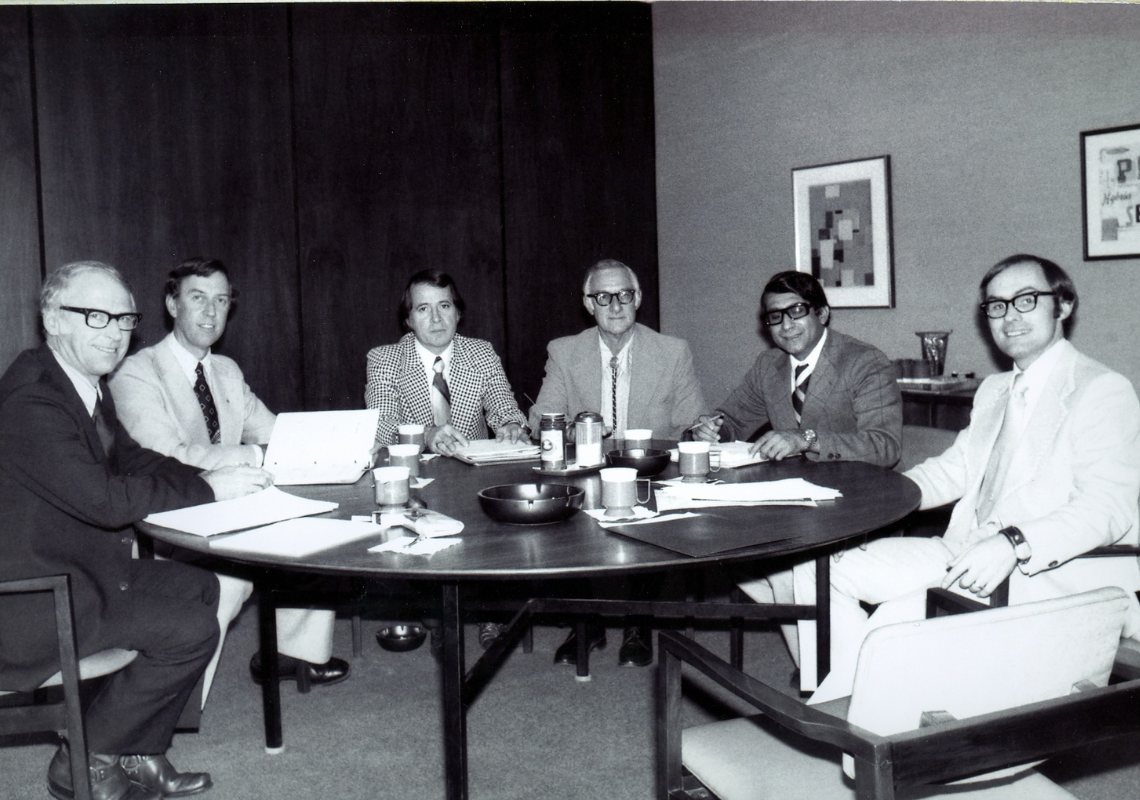
A name synonymous with seeds
The Yates family’s involvement in the seed industry started in England in the late 1700’s. James Yates, a cotton importer purchased a small quantity of Egyptian cotton seed and sold it to the colonist farmers in the southern part of the present-day U.S.A. This proved an inspired move as the demand for cotton seed grew and very soon James relinquished his cotton importing business and became a seed merchant.
Almost a century later, James' great grandson Arthur who was an asthmatic, took a sea voyage away from the smoky cold air of the industrialising British Midlands to New Zealand. Arthur worked as a shepherd and scythed grass seed from roadsides to supplement his income. The seed revenue quickly outstripped his shepherd’s wages, and in 1882 Arthur moved to Auckland, rented a rickety wooden shop in Victoria St West and opened a specialised seed business.
Philip Yates takes the reins
Arthur’s younger brother Ernest Yates travelled from England to join him in business in 1886. Ernest was followed in the trade by his son Norman and in 1973 grandson Philip became Chief Executive and Managing Director.
Arthur Yates and Co Ltd prospered and Yates' Reliable Seeds became a household name, wholesaling seed of every kind from flowers to vegetables, broad acre agricultural seeds to bird seed. While their product range was large, Philip was always looking for superior seed products. A magazine article about hybrid wheat caught his interest and ultimately led to a phone call to Pioneer Hi-Bred’s Overseas Division based in Des Moines, Iowa.
Signing with Pioneer
After a whirlwind tour of Pioneer’s U.S. operations and breeding programmes, Philip came to realise there was more near-term potential for hybrid maize than hybrid wheat in New Zealand.
Philip was impressed by Pioneer’s significant library of elite maize germplasm, their commitment and innovation in plant breeding, and above all else, their conservative family values and customer-focused “Long Look” philosophies. On Tuesday 18 December 1975, an agreement was signed in Des Moines, Iowa and the Yates Company became the New Zealand distributor and producer of Pioneer® brand seed.
The timing of the relationship between the two companies could not have been better. In the 1970’s Pioneer invested significantly in developing hybrids with ever-higher yields. Their new maize hybrids were breaking U.S.A. yield records and sales were on a rapid upward trajectory increasing five-fold from 1972 to 1980.
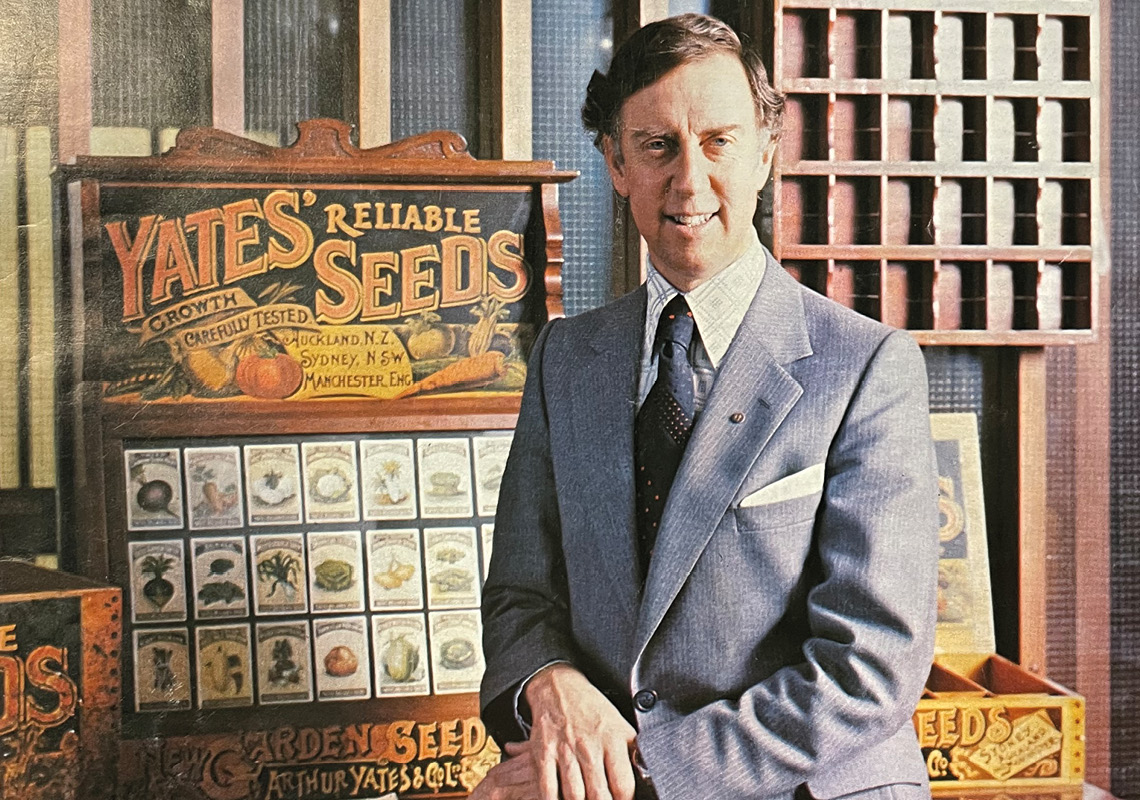
A slow process
While Pioneer had a range of exciting new products, New Zealand’s tight biosecurity requirements meant that only 48 individual maize seeds could be imported at a time. On arrival, seed had to be treated with a toxic combination of fungicides which meant only half would remain viable. Getting to the point of commercial release of a Pioneer hybrid was therefore a slow and labour-intensive process.
“We started with a handful of Pioneer parent seed which we had to multiply before we could get enough to produce even trial quantities of seed” says Philip. “It took a very long time to multiply the quantity of inbred seed to produce commercial volumes”.
The first Pioneer maize hybrid to be commercialised in New Zealand was 3709. The next hybrid was 3591 and a couple of seasons later 3901 was released as a shorter maturity option for lower North Island growers.
A winning hybrid takes off
Winning an independent maize grain trial at Kaipaki in the western Waikato was a turning point for sales with the two Pioneer hybrid entries 3709 and an experimental outstripping all the commercially available competitor hybrids.
“Pioneer maize seed wasn’t hard to sell” according to Richard Jellie who was a Waikato-based Sales Manager for Yates in the 1970’s. “3709 was a reliable hybrid which produced higher yields than longer maturity competitor hybrids and it didn’t fall over. Local growers had heard of the brand’s success in the U.S. market and couldn’t wait to get their hands on it”.
The improved standability was a real bonus because prior to 3709’s introduction it was not uncommon for people to walk alongside the combine standing up plants so the cobs could be harvested.
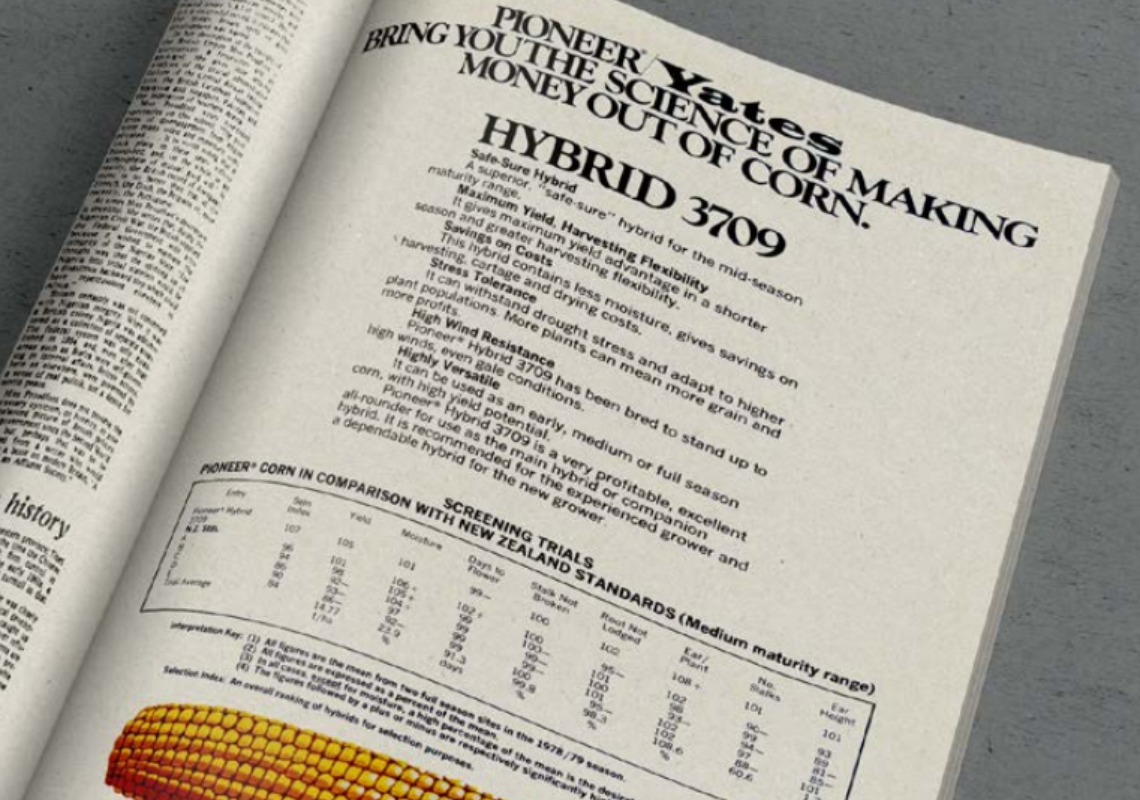
Early days of seed processing
The initial Pioneer seed crops were hand-picked and sun dried, but as sales grew Arthur Yates and Co. built a seed production plant at Waharoa in the eastern Waikato. Cobs were sorted and dried and the seed was then sent to the Manawatu for conditioning.
Neville Westbury, who started with Yates in 1978, can remember the challenges of drying seed maize in the damp Waikato climate.
“Maize was planted a lot later and the seed harvest didn’t take place until June or July” says Neville. “When it was foggy you could stoke the furnace all night and you were lucky if the seed hadn’t gained moisture by the morning”.
The seed drier was fired by burning the cob cores as well as coal. This saved fuel costs but ultimately proved to be a costly decision.
“The level of technology was low at the time and the smoke and gases discharged from incomplete cob combustion was so acidic that after a short few years the new seed production plant was almost completely rusted away” says Philip.
An end and a beginning
As the maize seed production plant was coming to an untimely end, so too was the Yates family’s involvement in the Yates company. In 1985, Equiticorp, a recently established investment bank, took control of the company via a share market raid and at the age of 53, Philip was dismissed and given two days to vacate his office.
Pioneer executives in the U.S. were unimpressed by the turn of events which did not sit well with their business ethics. They cancelled their distribution agreement with the now Equiticorp-controlled Yates company and offered Philip the Pioneer representation in New Zealand. Genetic Technologies Ltd was formed.
The new company had humble beginnings with the original two staff members, Operations Manager David Lobb and Administration Assistant Patricia Kessler, sharing an office with Philip in the downstairs of his Auckland home.
Ideal conditions for growth
For the first three seasons, Genetic Technologies imported Pioneer ® brand maize seed or had it produced locally under contract. In 1989 Philip employed Phil Evans as Production Manager and in 1990 a new seed production plant was commissioned in Gisborne.
“The growing conditions in the Gisborne region were ideal for maize allowing us to produce some of the world’s finest quality seed” says Philip.
Over the next few years, Genetic Technologies invested significantly in hybrid and agronomic research as well as continuing to promote the adoption of maize silage into the dairy industry. The field team grew to include Area Managers located in all maize growing areas as well as Dairy Specialists and a sizeable research team.
“We quickly realised it was impossible to get high quality trial data from a handful of trials” says Philip. “Pioneer had an enormous pool of maize genetics and we needed to invest in a large-scale local hybrid evaluation programme which would allow us to accurately identify those which performed best under New Zealand’s wide range of growing conditions”.
Vision for the future
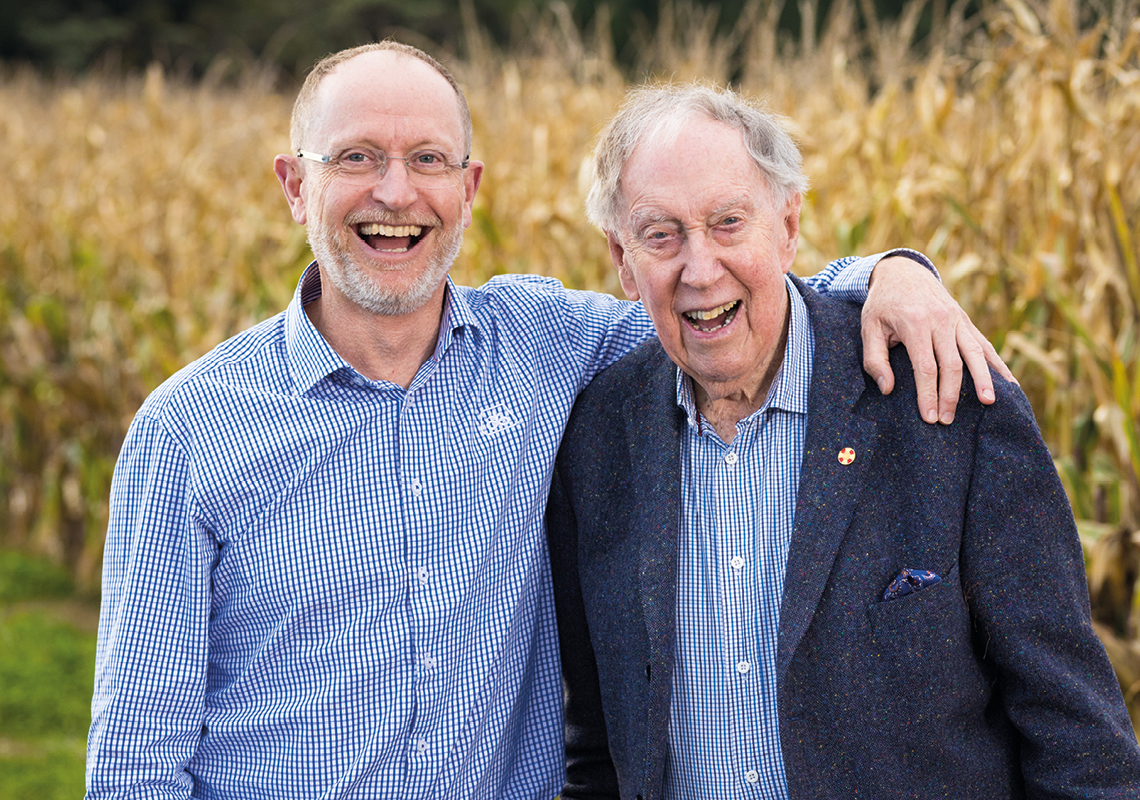
Philip’s son Will joined the company in 1990 and became the seventh generation of the family to be involved in the seed trade. Will “did his time” working alongside the field team including in the South Island market. Today he leads the management team for Genetic Technologies Ltd in New Zealand.
“Our company vision is to enhance the future of New Zealand agriculture, and we are investing in a range of hybrid, agronomic, farm systems and environmental research which will help local growers and users of Pioneer ® brand products build profitable and sustainable businesses” says Will.
“It is a real privilege for the Yates family to have represented Pioneer in the New Zealand market for the past 50 years and I want to personally thank all the farmers who have planted Pioneer as well as the many merchants, contractors and Pioneer team who have supported them over all those years".
"Our company vision is to enhance the future of New Zealand agriculture"
Listen to the story on the Feed for Thought podcast below:
The Yates Family Story: Celebrating 50-years of Pioneer in New Zealand
Join us for a special podcast celebrating 50 years since the signing of the seed production and distribution agreement between Pioneer® Hi-Bred International Incorporated and the Yates family. We’re joined by our Founder Philip Yates, Managing Director Will Yates, and Raewyn Densley to reflect on this 50-year journey.
We follow the story from importing maize genetics to building a domestic seed production facility and partnering with Gisborne growers to produce New Zealand grown maize seed. Raewyn Densley talks to how maize silage has shaped dairy systems in New Zealand. Through setbacks, grit, and a long-term view, the Yates' family remain committed to enhancing the future of New Zealand agriculture.
It’s been a privilege for the Yates family to represent the Pioneer brand in New Zealand over the past five decades. They sincerely thank the farmers who’ve planted Pioneer maize seed, along with the merchants, contractors, consultants, and the Pioneer team who’ve supported them throughout the years.

